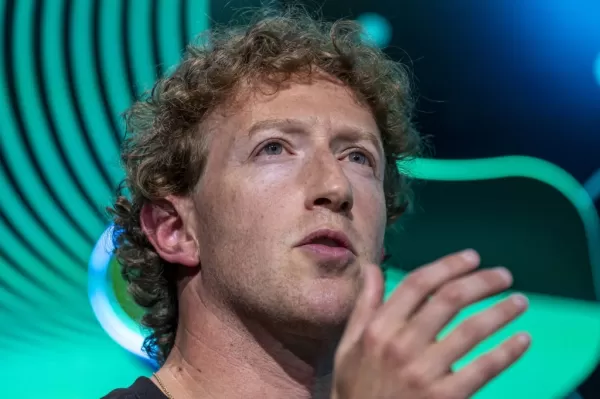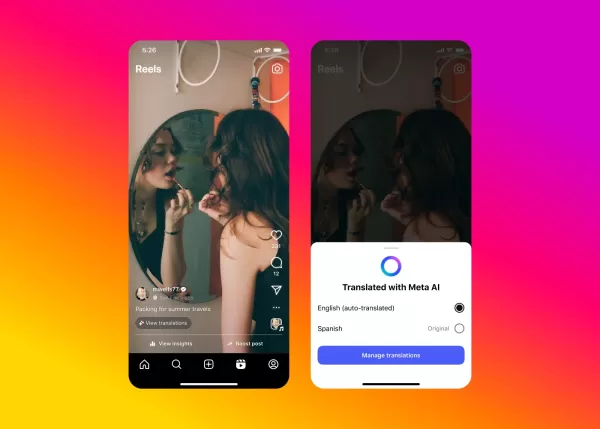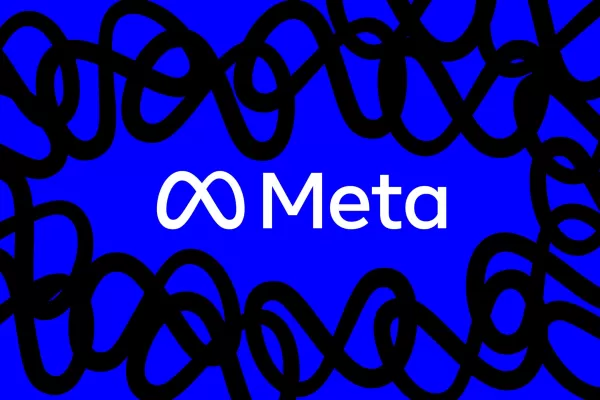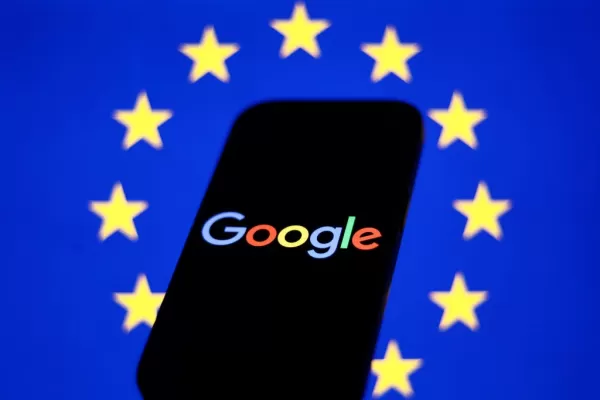Meta's Zuckerberg Says Not All AI 'Superintelligence' Models Will Be Open-Sourced

Meta's Strategic Shift Toward Personal Superintelligence
Meta CEO Mark Zuckerberg outlined an ambitious vision this week for "personal superintelligence" – AI systems that empower individuals to accomplish personal objectives - signaling potential changes to the company's AI deployment strategy.
The Open Source Dilemma
Zuckerberg's statement suggests Meta may reconsider its commitment to open-sourcing advanced AI models as it pursues superintelligent systems:
"We believe the benefits of superintelligence should be shared with the world as broadly as possible... That said, superintelligence will raise novel safety concerns. We'll need to be rigorous about mitigating these risks and careful about what we choose to open source."
This nuanced position marks a potential evolution for Meta, which previously positioned its Llama family of open models as differentiating factors against proprietary competitors like OpenAI and Google DeepMind.
A Changing Competitive Landscape
The shift follows Meta's:
- $14.3 billion investment in Scale AI
- Creation of Meta Superintelligence Labs
- Aggressive hiring of top AI researchers
- Massive infrastructure expansion
Industry analysts speculate these moves relate to Meta reportedly pausing development of its open "Behemoth" model to focus on closed-system alternatives.
Commercial Implications
Unlike competitors reliant on AI monetization, Meta's advertising-centric business model historically made open-source AI strategically viable. However, Zuckerberg's latest comments suggest tighter integration between advanced AI and Meta's hardware ecosystem:
"Personal devices like glasses that understand our context...will become our primary computing devices."
Meta's Current Position
A company spokesperson maintains Meta hasn't abandoned open-source AI:
"Our position on open source AI is unchanged. We plan to continue releasing leading open source models... We expect to continue training a mix of open and closed models going forward."
Industry Perspective
The tech community continues debating open vs. closed AI models, balancing:
- Innovation acceleration
- Commercial viability
- Safety considerations
- Competitive dynamics
TechCrunch Disrupt 2025 Announcement
Tech and VC Leaders Confirmed
Netflix, ElevenLabs, Wayve, and Sequoia Capital executives will headline TechCrunch Disrupt 2025, sharing insights about:
- Startup growth strategies
- Emerging technologies
- Investment trends
The 20th anniversary event takes place October 27-29, 2025 in San Francisco.
Related article
 Meta's AI Tackles Video Dubbing for Instagram Content
Meta is expanding access to its groundbreaking AI-powered dubbing technology across Facebook and Instagram, introducing seamless Video translation capabilities that maintain your authentic voice and natural lip movements.Revolutionizing Cross-Cultura
Meta's AI Tackles Video Dubbing for Instagram Content
Meta is expanding access to its groundbreaking AI-powered dubbing technology across Facebook and Instagram, introducing seamless Video translation capabilities that maintain your authentic voice and natural lip movements.Revolutionizing Cross-Cultura
 Meta AI App to Introduce Premium Tier and Ads
Meta's AI app may soon feature a paid subscription, mirroring offerings from competitors like OpenAI, Google, and Microsoft. During a Q1 2025 earnings call, Meta CEO Mark Zuckerberg outlined plans for
Meta AI App to Introduce Premium Tier and Ads
Meta's AI app may soon feature a paid subscription, mirroring offerings from competitors like OpenAI, Google, and Microsoft. During a Q1 2025 earnings call, Meta CEO Mark Zuckerberg outlined plans for
 Google Commits to EU’s AI Code of Practice Amid Industry Debate
Google has pledged to adopt the European Union’s voluntary AI code of practice, a framework designed to assist AI developers in aligning with the EU’s AI Act by implementing compliant processes and sy
Comments (0)
0/200
Google Commits to EU’s AI Code of Practice Amid Industry Debate
Google has pledged to adopt the European Union’s voluntary AI code of practice, a framework designed to assist AI developers in aligning with the EU’s AI Act by implementing compliant processes and sy
Comments (0)
0/200

Meta's Strategic Shift Toward Personal Superintelligence
Meta CEO Mark Zuckerberg outlined an ambitious vision this week for "personal superintelligence" – AI systems that empower individuals to accomplish personal objectives - signaling potential changes to the company's AI deployment strategy.
The Open Source Dilemma
Zuckerberg's statement suggests Meta may reconsider its commitment to open-sourcing advanced AI models as it pursues superintelligent systems:
"We believe the benefits of superintelligence should be shared with the world as broadly as possible... That said, superintelligence will raise novel safety concerns. We'll need to be rigorous about mitigating these risks and careful about what we choose to open source."
This nuanced position marks a potential evolution for Meta, which previously positioned its Llama family of open models as differentiating factors against proprietary competitors like OpenAI and Google DeepMind.
A Changing Competitive Landscape
The shift follows Meta's:
- $14.3 billion investment in Scale AI
- Creation of Meta Superintelligence Labs
- Aggressive hiring of top AI researchers
- Massive infrastructure expansion
Industry analysts speculate these moves relate to Meta reportedly pausing development of its open "Behemoth" model to focus on closed-system alternatives.
Commercial Implications
Unlike competitors reliant on AI monetization, Meta's advertising-centric business model historically made open-source AI strategically viable. However, Zuckerberg's latest comments suggest tighter integration between advanced AI and Meta's hardware ecosystem:
"Personal devices like glasses that understand our context...will become our primary computing devices."
Meta's Current Position
A company spokesperson maintains Meta hasn't abandoned open-source AI:
"Our position on open source AI is unchanged. We plan to continue releasing leading open source models... We expect to continue training a mix of open and closed models going forward."
Industry Perspective
The tech community continues debating open vs. closed AI models, balancing:
- Innovation acceleration
- Commercial viability
- Safety considerations
- Competitive dynamics
TechCrunch Disrupt 2025 Announcement
Tech and VC Leaders Confirmed
Netflix, ElevenLabs, Wayve, and Sequoia Capital executives will headline TechCrunch Disrupt 2025, sharing insights about:
- Startup growth strategies
- Emerging technologies
- Investment trends
The 20th anniversary event takes place October 27-29, 2025 in San Francisco.
 Meta's AI Tackles Video Dubbing for Instagram Content
Meta is expanding access to its groundbreaking AI-powered dubbing technology across Facebook and Instagram, introducing seamless Video translation capabilities that maintain your authentic voice and natural lip movements.Revolutionizing Cross-Cultura
Meta's AI Tackles Video Dubbing for Instagram Content
Meta is expanding access to its groundbreaking AI-powered dubbing technology across Facebook and Instagram, introducing seamless Video translation capabilities that maintain your authentic voice and natural lip movements.Revolutionizing Cross-Cultura
 Meta AI App to Introduce Premium Tier and Ads
Meta's AI app may soon feature a paid subscription, mirroring offerings from competitors like OpenAI, Google, and Microsoft. During a Q1 2025 earnings call, Meta CEO Mark Zuckerberg outlined plans for
Meta AI App to Introduce Premium Tier and Ads
Meta's AI app may soon feature a paid subscription, mirroring offerings from competitors like OpenAI, Google, and Microsoft. During a Q1 2025 earnings call, Meta CEO Mark Zuckerberg outlined plans for
 Google Commits to EU’s AI Code of Practice Amid Industry Debate
Google has pledged to adopt the European Union’s voluntary AI code of practice, a framework designed to assist AI developers in aligning with the EU’s AI Act by implementing compliant processes and sy
Google Commits to EU’s AI Code of Practice Amid Industry Debate
Google has pledged to adopt the European Union’s voluntary AI code of practice, a framework designed to assist AI developers in aligning with the EU’s AI Act by implementing compliant processes and sy





























